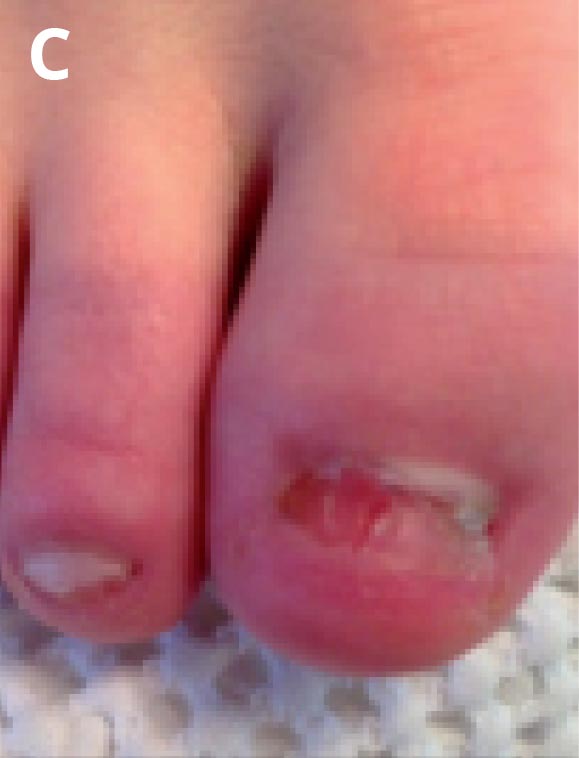- Brachycephaly with a typical craniofacial appearance (midface hypoplasia, characteristic mouth with a ‘cupid’s bow’ shape, prognathism)
- Ocular abnormalities (myopia and strabismus, iris anomalies)
- Speech delay with or without hearing loss
- Hoarse, deep voice
- Short stature with a history of failure to thrive
- Brachydactyly
- Peripheral neuropathy (pes cavus or pes planus, depressed deep tendon reflexes), and
- Scoliosis
- Aggression
- Self-injurious behaviours
- Low sensitivity to pain
- Temper tantrums
- Impulsivity
- Repetitive behaviour
- Hyperactivity with attention deficit
Figure 1. Phenotypic Features of Smith Magenis Syndrome4





A. SMS patient with sleep disturbance, illustrating commonly observed "sleep attacks".
B. Craniofacial anomalies can include midface hypoplasia and tented upper lip in SMS.
C. Self-injurious behaviours like pulling out of fingernails and/or toenails are unique to SMS.
D. Stereotypical behaviour like self-hugging in SMS patient, typically observed during times of excitement or happiness.
E. Obesity is frequently observed in persons with SMS.
References:
3. De Leersnyder, H. 2006. ‘Inverted rhythm of melatonin secretion in Smith-Magenis syndrome: from symptoms to treatment’, TRENDS in Endocrinology and Metabolism. Volume 17, Issue 7, 291-298
4. Chen, Li. et. al. 2015. ‘Smith-Magenis syndrome and its circadian influence on development, behaviour, and obesity – own experience’, Developmental Period Medicine. Volume 19, Issue 2, 149-56


